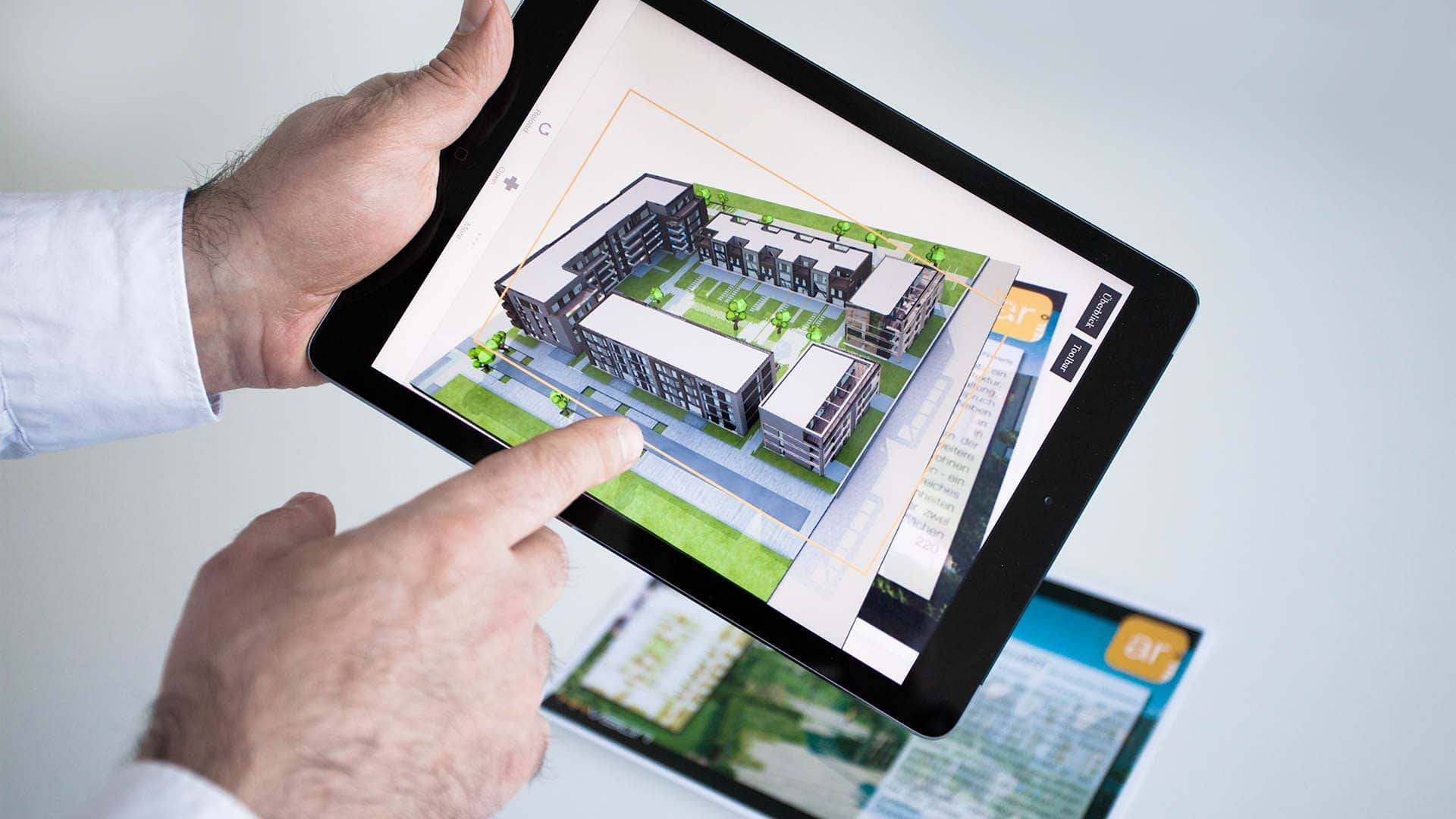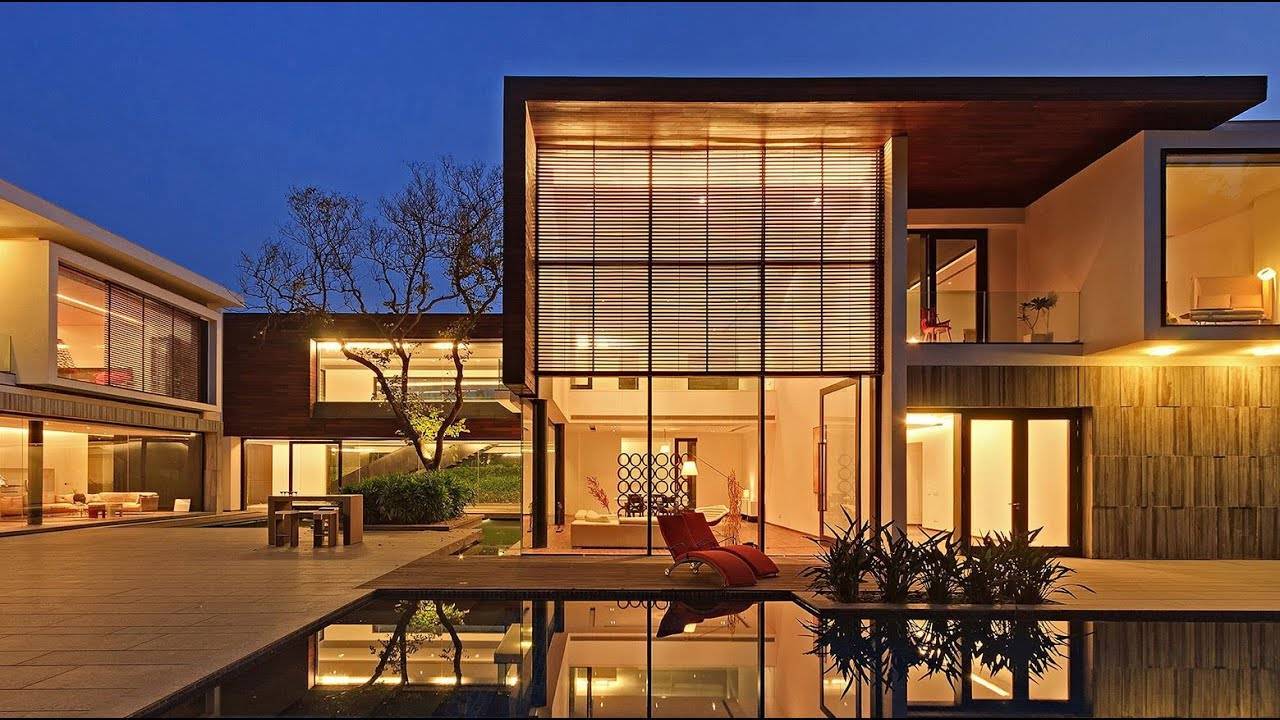Real estate sector is undergoing a revolutionary transformation with the advent of Augmented Reality (AR), a technology that blends the digital and physical worlds, enhancing the way properties are showcased, explored, and experienced. AR in real estate is not just an emerging trend; it's becoming a central technology in redefining property viewing and purchasing processes.
AR: Beyond a Buzzword
In practical terms, AR in real estate involves the use of devices like smartphones, tablets, or AR glasses to superimpose digital elements onto the real world, providing a richer viewing experience. This means potential buyers can virtually explore properties, viewing 3D models and interactive floor plans in real-time, which is especially beneficial for to-be-constructed or under-construction projects. This seamless integration of digital and physical elements offers a comprehensive understanding of properties, transforming the traditional viewing experience.
The Essence of AR in Indian Real Estate
In India Augmented Reality has brought a novel approach to property viewing, offering an interactive and immersive journey that allows potential buyers to visualize and interact with properties in unprecedented ways. Unlike traditional methods, AR enables users to see beyond static images, offering a dynamic exploration experience. This includes experimenting with interior designs, furniture placements, and potential renovations without physically altering the space. With reports indicating a 67% user preference for virtual tours, AR empowers buyers, enhancing their confidence and efficiency during the property search.
Advantages of AR in Indian Real Estate
The integration of Augmented Reality (AR) in the real estate industry in India is transforming the way properties are marketed, viewed, and sold. This technological innovation brings numerous advantages that significantly enhance the buying and selling process for all parties involved. Here are some of the key benefits:
1. Enhanced Property Visualization
AR allows potential buyers to visualize properties in great detail without physically being there. They can explore 3D models of properties, see how the furniture fits, and even modify interior designs according to their preferences. This immersive experience helps buyers better understand the property's potential, making it easier to make informed decisions.
2. Time and Cost Efficiency
With AR, real estate agents can offer virtual tours of properties, saving both time and money for themselves and their clients. This technology eliminates the need for multiple in-person viewings, making the property search process more efficient and convenient, especially for out-of-town buyers.
3. Improved Buyer Engagement and Experience
AR creates an interactive and engaging experience for buyers, allowing them to interact with the property in ways not possible with traditional viewing methods. This enhanced engagement can lead to a stronger emotional connection to the property and a faster decision-making process.
4. Market Differentiation
Real estate agents and companies that adopt AR technology set themselves apart from competitors. Offering AR-based viewings and information can be a unique selling proposition that attracts more tech-savvy buyers and sellers, giving businesses an edge in a competitive market.
5. Better Information Retention
The interactive nature of AR helps potential buyers remember properties better compared to traditional viewing methods. This can be particularly beneficial when buyers are considering multiple properties and need to recall specific details about each.
6. Instant Modification and Customization
AR enables potential buyers to instantly see modifications and customizations to the property, such as changes in wall colors, flooring, or furniture layouts. This not only enhances the viewing experience but also helps buyers visualize the property as their future home.
7. Effective Marketing Tool
AR can be a powerful marketing tool for real estate companies. By incorporating AR into listings, companies can attract more views and generate higher engagement, leading to quicker sales. AR content can also be easily shared on social media and other digital platforms, increasing the reach and visibility of listings.
8. Ease of Access
With the widespread use of smartphones and tablets, accessing AR experiences has become easier than ever. Potential buyers can explore properties through AR from anywhere at any time, making property viewing more accessible to a broader audience.
9. Environmental Benefits
By reducing the need for physical models and printed materials, AR contributes to a more sustainable real estate industry. Virtual tours and digital brochures can significantly reduce paper waste and the carbon footprint associated with travel to multiple property viewings.
The adoption of AR in India's real estate sector is still evolving, but its potential to revolutionize the industry is clear. As technology advances and becomes more accessible, we can expect to see a significant shift in how real estate transactions are conducted, with AR playing a central role in this transformation.
Different companies providing Augmented Reality (AR) service in Indian Real Estate
In India, several innovative companies are pioneering the use of Augmented Reality (AR) in the real estate sector, offering a range of services from virtual tours to interactive models that help buyers visualize their future homes. Here are some of the key players:
1. Tesseract- Tesseract is an Indian company that has made significant strides in mixed reality and AR technologies. They have ventured into real estate by offering immersive and interactive property visualizations, which can be a game-changer for developers and buyers alike.
2. SmartVizX- SmartVizX aims to transform traditional real estate marketing and sales approaches with its Virtual Reality (VR) and AR solutions. Their platform, Trezi, is geared towards immersive design and collaboration in the real estate sector, allowing users to experience spaces interactively.
3. Foyr- Foyr provides AI-driven interior design software that integrates AR to help users and professionals visualize space layouts with real furniture and decor items. While primarily focused on interior design, its applications in real estate for staging and showcasing properties are significant.
4. Quytech- Quytech is a mobile app development company that also specializes in AR and VR solutions. They offer customized AR applications for the real estate industry, including virtual property tours and interactive models, aiding developers and agents in presenting properties more effectively.
5. Augment Works- Augment Works focuses on AR and VR solutions across various sectors, including real estate. They create immersive experiences for property buyers by offering virtual walkthroughs and interactive models that can significantly enhance the property buying experience.
These companies are at the forefront of integrating AR technology into the real estate industry in India, offering innovative solutions that enhance how properties are visualized, marketed, and sold.
The Future of AR in Indian Real Estate
In India, the adoption of AR in the real estate sector is still in its early stages but shows immense potential. Real estate developers and professionals are gradually integrating AR into their marketing and sales strategies to offer an innovative and immersive experience to potential buyers. Properties featuring virtual tours through AR have seen a significant increase in engagement, with a 40% rise in clicks for listings and a 49% increase in qualified leads. This not only boosts visibility but also provides a competitive edge in a saturated market.
As per Hindustan Times Report, the future of AR in the Indian real estate industry is bright, with projections suggesting a robust Compound Annual Growth Rate (CAGR) of 31.38% between 2021 and 2027. This innovative technology is poised to become an industry standard, offering a more engaging, efficient, and customer-centric approach to real estate. Real estate companies that embrace AR will not only meet the demands of tech-savvy consumers but also gain a competitive edge in the market.
Conclusion
The integration of AR in real estate is more than a technological evolution; it represents a significant shift in how properties are marketed, viewed, and purchased. AR offers a transformative experience that goes beyond mere property exploration, providing a competitive advantage for industry players and empowering buyers with more immersive and efficient exploration tools. As we look towards 2024, the use of AR in the Indian real estate sector is expected to reshape the industry, making it more customer-focused and efficient. The success stories of Amazon, HomeLane, and QuikrHomes highlight the tangible benefits of AR, indicating a future where AR becomes integral to the real estate industry. With the continuous evolution of the Indian real estate market, embracing AR technology will be crucial for staying ahead in meeting the demands of the next generation of homebuyers, marking a new era of engagement and efficiency in real estate transactions









.png)